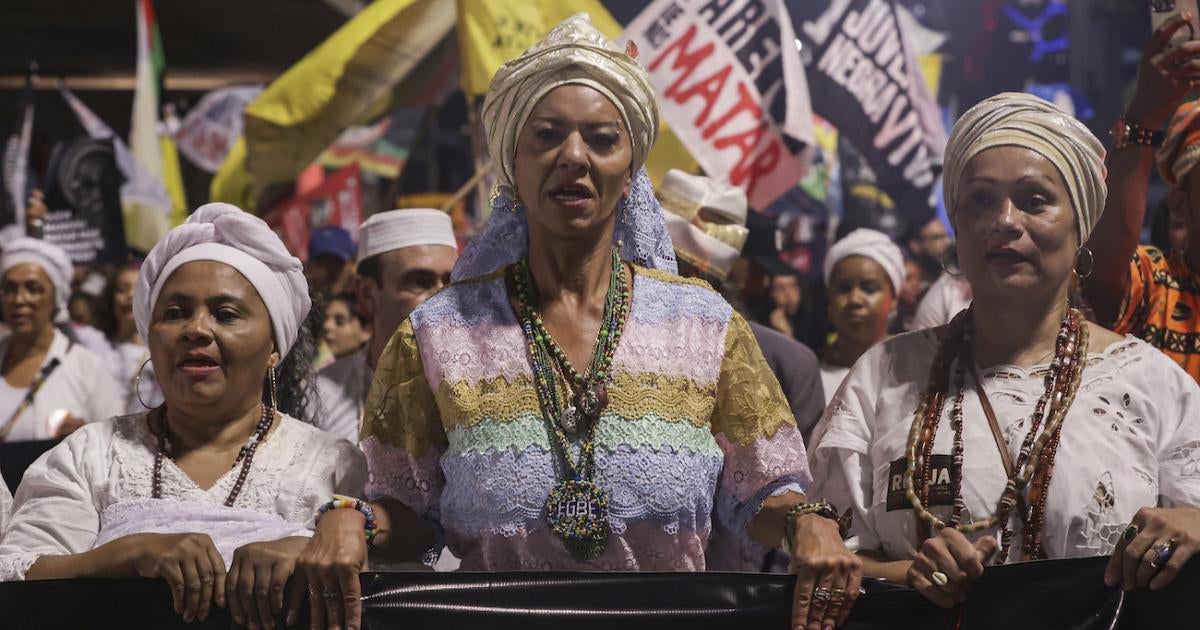(Sao Paulo) – Brazilian President Luiz Inacio Lula da Silva’s administration made important progress in protecting the Amazon, women’s rights, and other rights in 2023, but failed to address chronic problems of police abuses or consistently defend human rights abroad, Human Rights Watch said in its World Report 2024 released today.
“President Lula has finished his first year in office with a mixed record on human rights,” said Cesar Minhos, deputy Brazil director at Human Rights Watch. “While he has rolled back some of his predecessor’s anti-human rights policies, significant challenges remain, including excessive police use of force that disproportionately affects black Brazilians and a foreign policy that has failed to consistently advance human rights.”
Human Rights Watch’s 34th edition, the 740-page World Human Rights Report 2024, examines the human rights situation in more than 100 countries. In her foreword, Executive Director Tirana Hassan said that 2023 was a critical year, with human rights repression and wartime atrocities as well as selective government outrage and transactional diplomacy exacting a heavy toll on the rights of those not involved in the deal. However, she said there were also signs of hope, suggesting that a different path could be possible, and called on governments to consistently comply with their human rights obligations.
President Lula has reversed some of the disastrous anti-environment policies of his predecessor, Jair Bolsonaro. During Bolsonaro’s term, deforestation in the Amazon increased by 53%. Preliminary data shows that between January and November 2023, when Lula took office, deforestation in the Amazon fell by 50% compared to the same period in 2022.
President Lula broke with President Bolsonaro’s anti-indigenous rights stance, reinstating indigenous land titling and appointing the first indigenous leaders to head the newly created Ministry of Indigenous Affairs and the Brazilian Institute for Indigenous Affairs. In a landmark decision, the Supreme Court also rejected attempts to block indigenous peoples from obtaining title to their traditional lands. However, Congress responded by approving a bill that went against the ruling and later overriding the president’s veto.
Lula’s administration also improved Brazil’s greenhouse gas emissions reduction targets and introduced in Congress the Escazu Accord, a regional treaty that calls on Latin American and Caribbean governments to protect environmental activists and guarantee access to information and public participation on environmental issues.
But the government has failed to halt the destruction of the forested savannah known as the Cerrado, which preliminary data showed had increased by 41 percent through November. The government plans to significantly increase oil and gas production over the next decade. In December, President Lula announced at COP28, the United Nations’ annual climate change conference, that Brazil plans to join OPEC+, a grouping of oil-producing countries, as an observer.
Lula’s government has introduced legislation to guarantee equal pay for women, eliminated a regulation that required health workers to report rape victims who seek abortions to the police, and renewed efforts to promote sexual and reproductive health education.
Lula’s government created a new Ministry of Racial Equality but has failed to take decisive steps to address police violence, which has disproportionately victimized Brazil’s African-descendant population. Police have killed more than 6,000 people each year since 2018, more than 80% of whom were Black in 2022. Police killings increased in 16 states between January and June 2023 compared to the same period in 2022, according to data collected by the nongovernmental organization Brazilian Forum for Public Security.
Over the past decade, Human Rights Watch has documented serious flaws in investigations led by the state police, known as the civil police, including a 2023 investigation into the killings of 28 people during a São Paulo police operation.
While state governors oversee state police, the federal government has the power to coordinate state and local efforts, set national public policy, and ensure that reducing police killings is a condition of federal security budgets. Lula’s government is reviewing Brazil’s national security plan, which should include goals and concrete measures to curb police killings across the country, Human Rights Watch said. In particular, the plan should coordinate closely with the attorney general’s office, which should increase oversight of the police and require prosecutors to lead investigations of police abuses rather than police investigating independently.
A key measure to ensure judicial independence and the protection of human rights is to have a prosecutor general whose decisions are based on the law, not political interests. In Brazil, this independence has traditionally been maintained by the practice of choosing the president from a list of three candidates selected by the nation’s prosecutors. However, President Lula followed the bad example of President Bolsonaro by choosing a name that was not on that list.
Brazil’s foreign policy has been inconsistent on human rights under President Lula, whose government has pushed for stronger protection of the right to education and for humanitarian aid to civilians in Gaza amid escalating Israeli-Palestinian hostilities.
But despite a long list of authoritarian actions and rights abuses by the government of Nicolas Maduro, President Lula said concerns about the weakening of Venezuela’s democratic institutions are a “concocted narrative.”
“President Lula has promised to put Brazil back on the world stage,” Muñoz said. “Brazil’s new global positions, including membership in the UN Human Rights Council, BRICS and its presidency of the G20 in 2024, should be used to promote human rights and condemn violations, regardless of the geopolitical interests or ideology of the governments responsible for those violations.”

